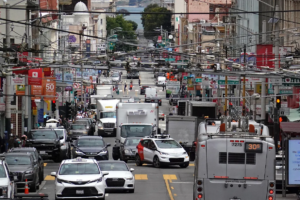After a six-hour public hearing, robotaxi companies Waymo and Cruise won approval to operate their paid services 24/7 in San Francisco. It’s a big win for autonomous vehicle operators, who have already spent tens of billions of dollars on the technology.
The California Public Utilities Commission (CPUC) has voted to allow two companies to operate their vehicles 24/7 throughout the city of San Francisco and charge for the ride. “Today is the first of many steps toward bringing autonomous vehicle transportation services to Californians,” CPUC Commissioner John Reynolds said at the end of the hearing.
Commissioners urged the companies to address concerns raised by San Francisco officials and residents about autonomous vehicles blocking roads, causing traffic jams and impeding emergency vehicles. If more incidents are reported, the CPUC could vote to limit the number of vehicles allowed on the road or revoke the companies’ permits altogether.
Currently, robotaxi companies offer only limited services. The permit essentially gives the robotaxis full access to the peninsula and its inhabitants. Now they can operate like Uber or Lyft – travel anywhere in the city, at any time of the day, and charge for rides.
Waymo hailed the decision as a “pivotal moment” in the history of autonomous vehicles. “Today’s approval marks the true beginning of our business in San Francisco,” said Waymo Co-CEO Tekedra Mawakana.
Cruise CEO Kyle Vogt called the decision “a huge milestone for the autonomous vehicle industry, but more importantly, a signal to the country that CA is prioritizing progress over our tragic status quo.”
San Francisco city officials have been asking the state for months to delay the vote, citing incidents where autonomous vehicles have stopped traffic, blocked buses or obstructed emergency vehicles. The city’s transit agency and fire and police departments have all filed complaints with the CPUC, urging the commission to reconsider the 24/7 service plan.
The CPUC said in its response that Waymo and Cruise have met all of their obligations under the state’s regulatory framework covering the testing and commercialization of autonomous vehicles. “We have to base our decision on that data and evidence and the scope of our authority,” commission president Alice Busching Reynolds said. “We expect autonomous vehicle companies to engage with first responders, law enforcement and city officials and look forward to taking action to address the issues.”
Source: The Verge

